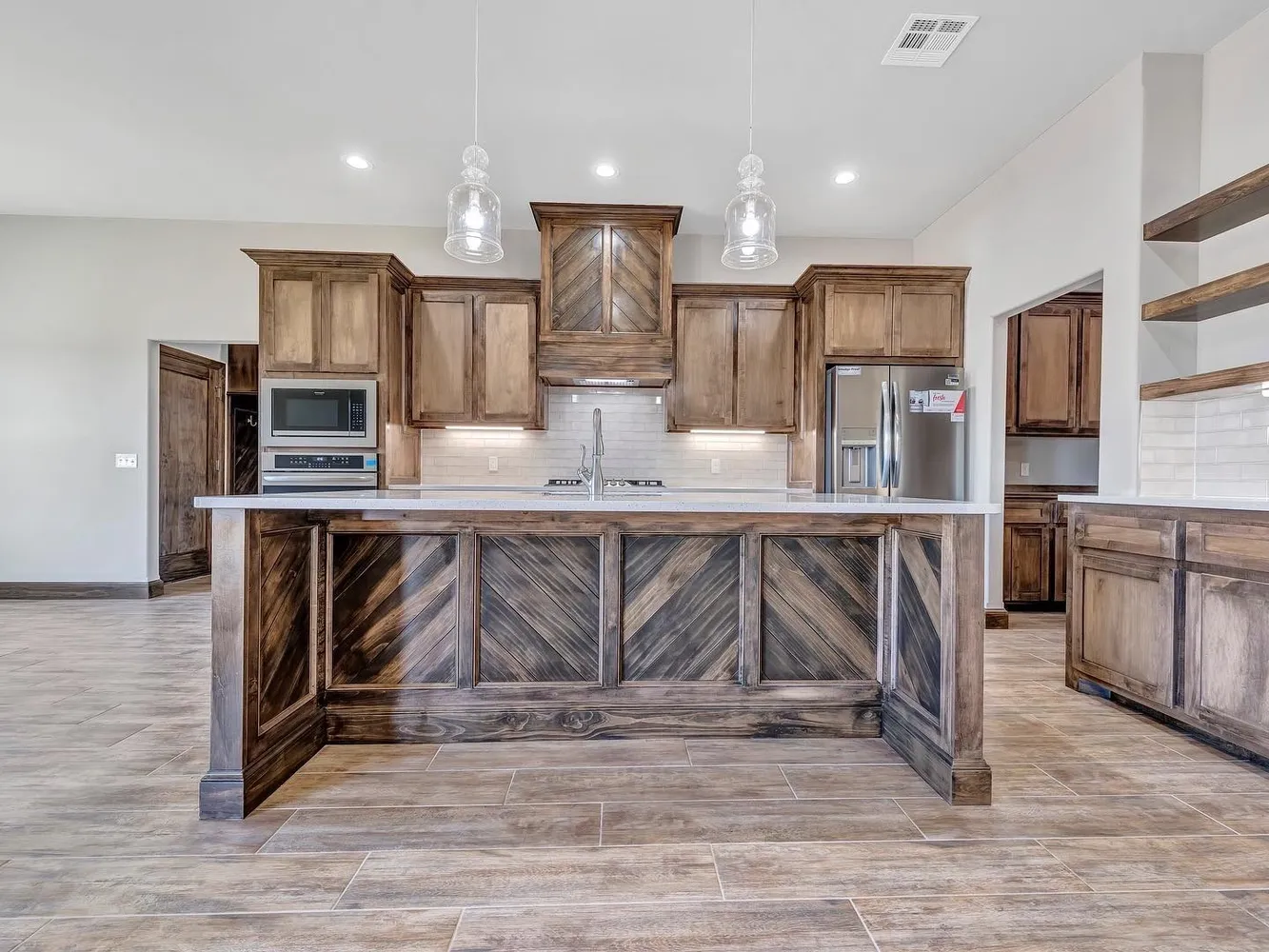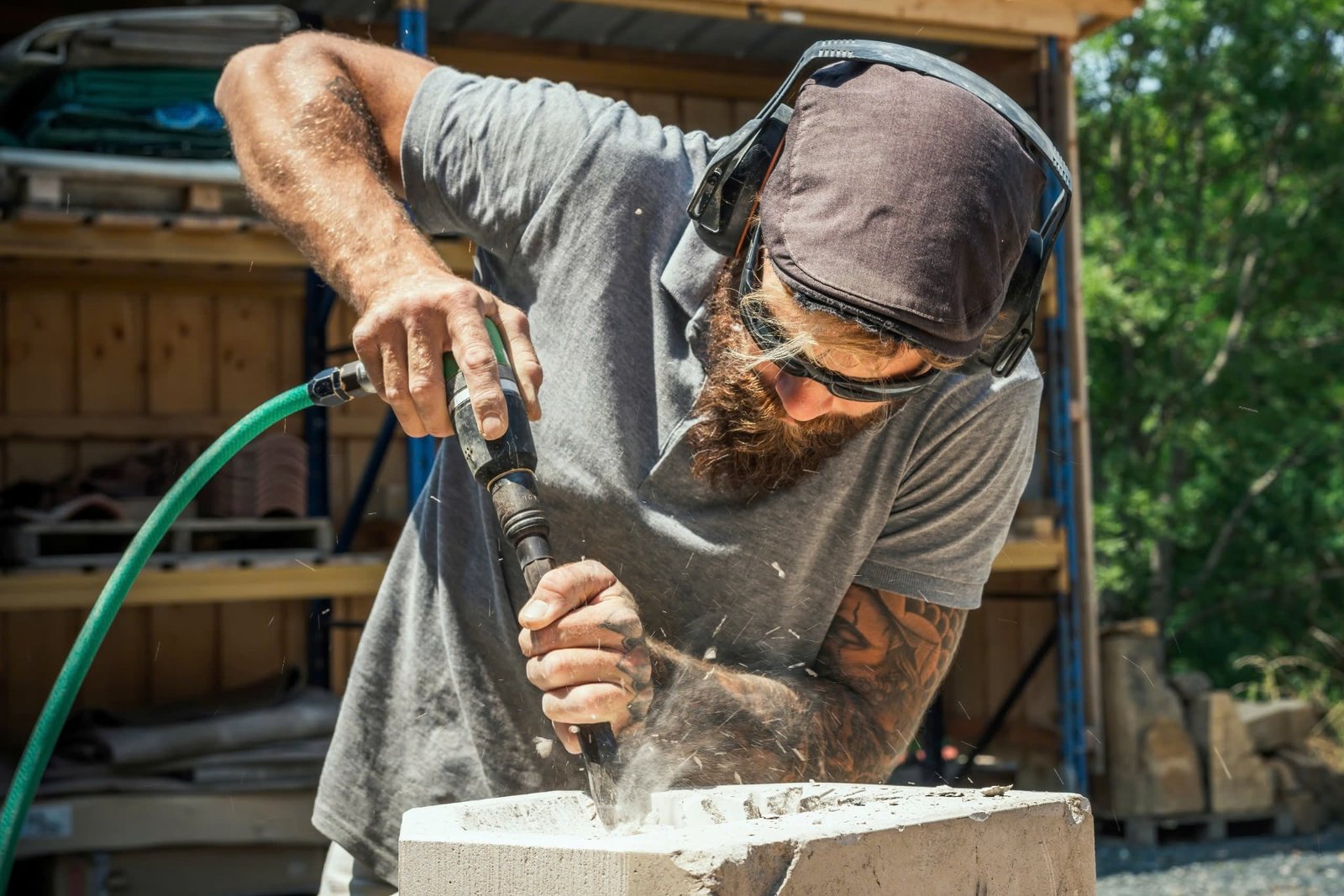
Granite countertops are a top choice for homeowners who want luxurious, durable, and timeless surfaces in their kitchens and bathrooms.
Granite countertops are a top choice for homeowners who want luxurious, durable, and timeless surfaces in their kitchens and bathrooms. From sleek black granite countertops to warm brown granite countertops and elegant white granite countertops, this natural stone adds beauty and functionality to any space. But if you’ve recently installed granite or are planning to, you might be wondering: Do you have to seal granite countertops?
In this comprehensive guide, we’ll explore whether sealing is necessary, how it protects your granite, how often to do it, and what to expect in terms of maintenance and cost.

Why Sealing Granite Countertops Matters
Granite is a natural stone formed deep within the Earth. While incredibly strong and heat resistant, granite is also porous—meaning it can absorb liquids and oils over time. If unsealed or improperly maintained, granite can stain, discolor, and harbor bacteria, especially in high-use areas like granite kitchen countertops and granite bathroom countertops.
Sealing granite adds a protective layer, preventing moisture, grease, wine, and acidic spills from penetrating the stone. This not only maintains the stone’s aesthetic but also prolongs its durability and value.
💡 Curious about quartz? Read What Are Quartz Countertops?

Do All Granite Countertops Need Sealing?
✔️ Most Do—But Not All
Not all granite slabs are created equal. Some are denser and less porous than others. For example:
- Darker granites like black granite countertops or blue pearl granite countertops often have tighter grain structures and may require less frequent sealing.
- Lighter granites, such as white or honed granite countertops, are typically more porous and may need sealing more often.
You can perform a simple water absorption test to check if your granite needs sealing. Just pour a few drops of water on the surface. If it darkens within a few minutes, it’s time to seal.
What Happens If You Don’t Seal Granite?
Unsealed granite can absorb:
- Oils from cooking
- Acids from citrus and vinegar
- Pigments from wine or coffee
Over time, this can result in:
- Dark spots or stains
- Etching and discoloration
- Weakened structural integrity
If your granite is not properly sealed, cleaning becomes more difficult and spills can cause permanent damage.
How Often Should You Seal Granite Countertops?
Frequency depends on use, location, and type of granite. Here are general guidelines:
| Location or Type | Suggested Sealing Frequency |
|---|---|
| Granite kitchen countertops | Every 12–18 months |
| Granite bathroom countertops | Every 2–3 years |
| Polished granite countertops | Every 2 years |
| Honed granite countertops | Annually |
| Granite countertops for outdoor kitchens | Every 6–12 months |
🧪 Related: How to Seal Granite Countertops
Benefits of Sealing Granite Countertops
✅ Pros
- Repels stains, oils, and moisture
- Enhances shine and color
- Makes daily cleaning easier
- Protects against bacteria
- Preserves long-term value
❌ Cons
- Needs periodic reapplication
- Over-application can leave residue
- Slight additional cost for materials or professional sealing
How to Test If Your Granite Needs Sealing
Try the “Water Drop Test”:
- Pour a small amount of water on the countertop.
- Wait 15 minutes.
- If the granite darkens or absorbs the water, it needs sealing.
🔄 Also helpful: Quartz vs. Granite Cost Comparison
Cost of Sealing Granite Countertops
| Task | Average Cost |
|---|---|
| DIY Granite Sealer | $20–$50 per bottle |
| Professional Sealing Service | $200–$500 depending on size |
DIY kits are widely available, but for high-end custom granite countertops, hiring a pro ensures even coverage and finish.
Granite Countertop Maintenance Tips
To extend the lifespan of your sealed granite:
- Use mild dish soap and warm water for daily cleaning.
- Avoid acidic or abrasive cleaners.
- Wipe spills immediately.
- Reapply sealer based on water absorption tests.
Want industrial lifting help? Check out Paver Lifter for stone transport.
Are Granite Countertops Still Popular in Modern Kitchens?
Yes, and for good reason. Granite remains a top choice for:
- Natural beauty and variety of colors
- Durability and resistance to heat
- Compatibility with white cabinets, modern kitchen islands, and luxury bathrooms
While quartz is growing in popularity, granite continues to lead for homeowners wanting natural stone vs engineered stone countertops.
Learn how it’s made: How Are Quartz Countertops Made?
Final Verdict: Should You Seal Your Granite Countertops?
In most cases, yes. Sealing granite countertops is a smart, affordable step to protect your investment. It takes less than an hour and can save hundreds in repairs, staining, or resurfacing later.
Whether you’re updating granite slabs for countertops in your new build or refreshing granite countertops near me, be sure to factor in sealing as a regular part of your care routine.

